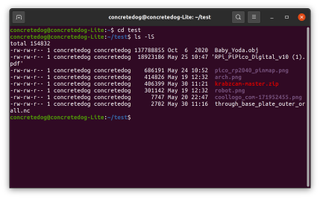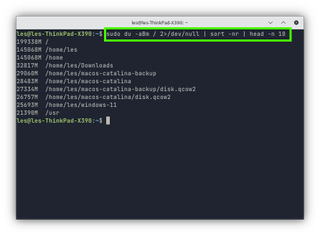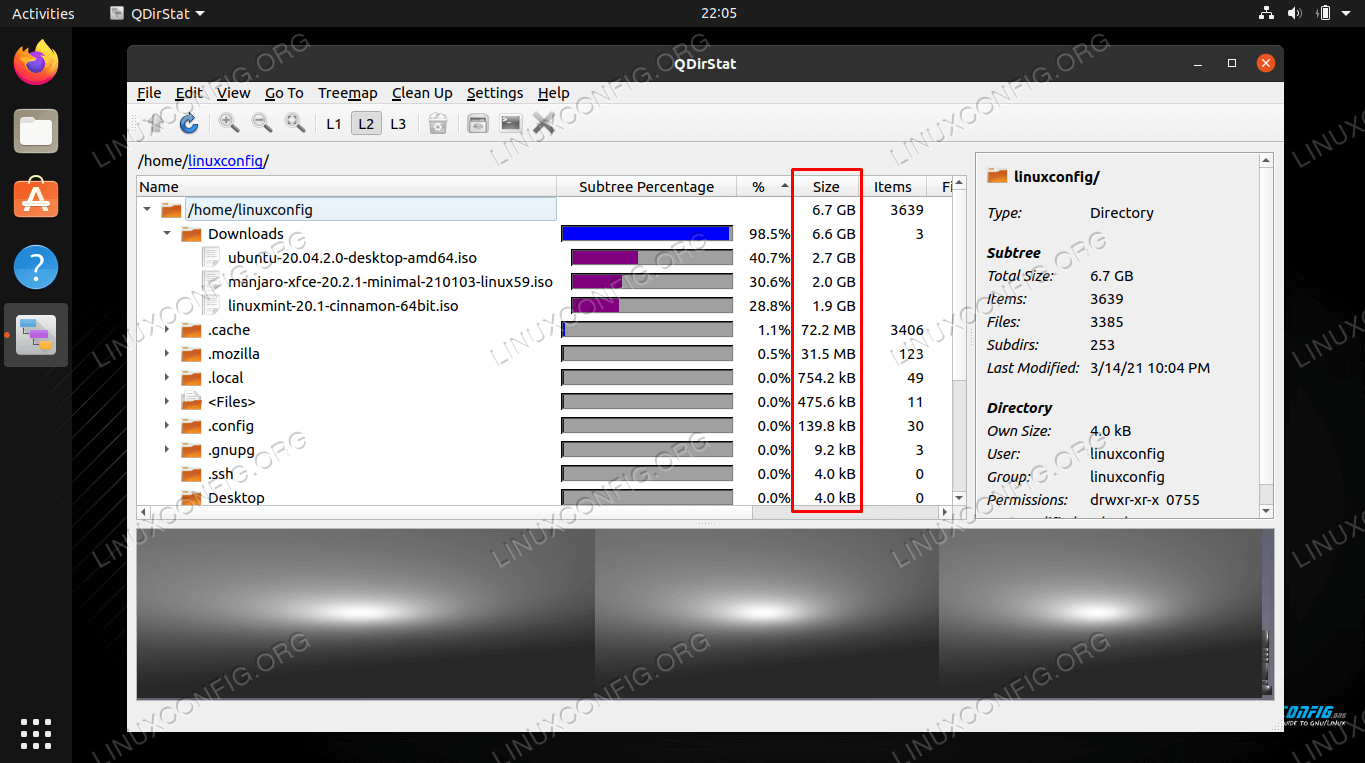Hey there, fellow Linux enthusiasts! Have you ever been curious about which files are hogging the precious space on your hard drive? In this guide, we’ll dive into the world of “How To Find Large Files On Linux.” Join us on an exciting journey where we’ll explore various techniques to locate those massive data munchers. Whether you’re a seasoned Linux pro or just getting started, this knowledge will empower you to optimize your system and keep it running smoothly. Let’s dive right in!
- Uncovering Giganormous Files: A Linux Exploration

How To Find Large Files on Linux | Tom’s Hardware
bash - How to find the largest file in a directory and its subdirectories. Sep 20, 2012 18 Answers 18 · 1. i’m sorry xargs , i have neglected you +1. – Steve · 3. to handle filenames with spaces, use find . -type f -print0 | xargs -0 , How To Find Large Files on Linux | Tom’s Hardware, How To Find Large Files on Linux | Tom’s Hardware
- Guide to Hunting Down Colossal Files in Linux

How To Find Large Files on Linux | Tom’s Hardware
How To Find The Largest Files In Linux - Virtono Community. Apr 12, 2023 To find the largest files on your system, you can use a command line tool such as “du” (short for disk usage). The “du” command shows the size , How To Find Large Files on Linux | Tom’s Hardware, How To Find Large Files on Linux | Tom’s Hardware
- Beyond grep: Unveiling Massive Files in Linux

How To Find Large Files on Linux | Tom’s Hardware
linux - Find largest directories/files recursively - Server Fault. Jun 12, 2009 You can see the 10 largest directories with: du -cks *|sort -rn|head This will recursively add up the sizes of everything in each directory., How To Find Large Files on Linux | Tom’s Hardware, How To Find Large Files on Linux | Tom’s Hardware
- Linux vs. Large Files: A Collision of Bytes

How To Find The Largest Files In Linux - Virtono Community
How To Find Large Files on Linux | Tom’s Hardware. Jun 13, 2022 Finding the 10 Largest Linux Files on Your Drive · 1. Open a terminal. · 2. Use the du command to search all files and then use two pipes to , How To Find The Largest Files In Linux - Virtono Community, How To Find The Largest Files In Linux - Virtono Community
- The Future of File Hunting: AI-Driven Insights

How to find large files on Linux - LinuxConfig
find - Finding all large files in the root filesystem - Unix & Linux Stack. Jul 2, 2014 It lists all files that has size bigger than 100M. If you want to know about directory, you can try ncdu., How to find large files on Linux - LinuxConfig, How to find large files on Linux - LinuxConfig
- Expert Tips for Tackling Linux’s File Monsters

*How To Find Large Files and Directories in Linux Server | by *
How to Find Large Files on Linux: 4 Easy Options. To find all files above a certain size on the entire filesystem, use sudo find / -type f -size +500M -ls. In this command, only files larger than 500 MB will , How To Find Large Files and Directories in Linux Server | by , How To Find Large Files and Directories in Linux Server | by
Essential Features of How To Find Large Files On Linux Explained

How to Find Large Files on Linux: 4 Easy Options
How to find directories/files that take up the most disk space on a. The Diskspace Usage Viewer extension can show what directories and files consume disk space. Open the extension: On the Diskspace Usage tab, find all , How to Find Large Files on Linux: 4 Easy Options, How to Find Large Files on Linux: 4 Easy Options
How To Find Large Files On Linux vs Alternatives: Detailed Comparison

How To: Linux Find Large Files in a Directory - nixCraft
linux - How to find the largest directories or largest files? - Super User. Apr 28, 2011 The most useful tool I’ve found is xdiskusage (xdiskusage.sourceforge.net) This shows graphically where the files are - by size. Great tool!, How To: Linux Find Large Files in a Directory - nixCraft, How To: Linux Find Large Files in a Directory - nixCraft, How to Find Large Files on Linux: 4 Easy Options, How to Find Large Files on Linux: 4 Easy Options, Apr 20, 2011 This command will find all files in directory $DIRECTORY and execute ls -s on them. The last command prints the allocated size of a file plus
Conclusion
Discovering extensive files on Linux is now a breeze. Using the ‘find’ command, you can effortlessly locate files exceeding a specified size. If you’re seeking a more comprehensive approach, tools like ‘ncdu’ and ‘du -a’ provide detailed breakdowns of disk usage. Remember, file sizes can fluctuate over time, so periodic scans are recommended to ensure your system remains organized. With these techniques at your disposal, you can effectively manage storage space and keep your Linux system running smoothly. Explore further resources on file management to enhance your knowledge and optimize your system’s performance.